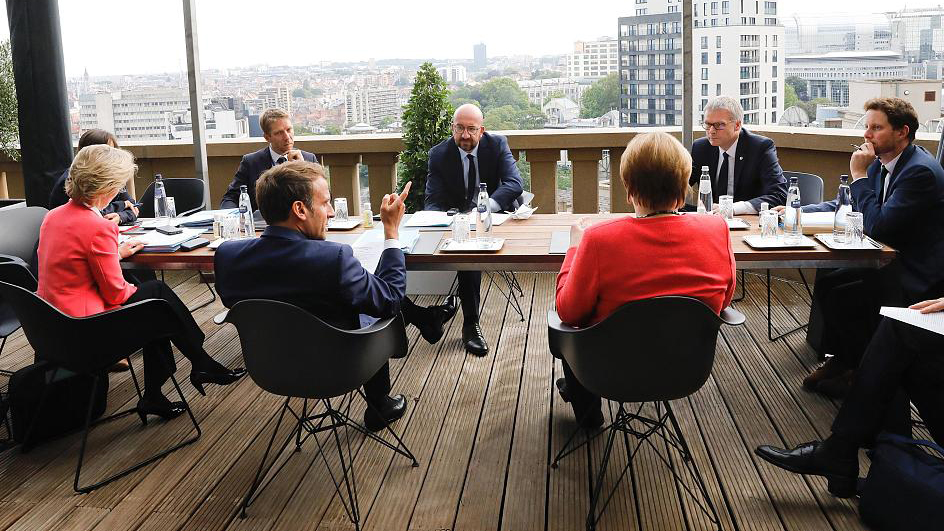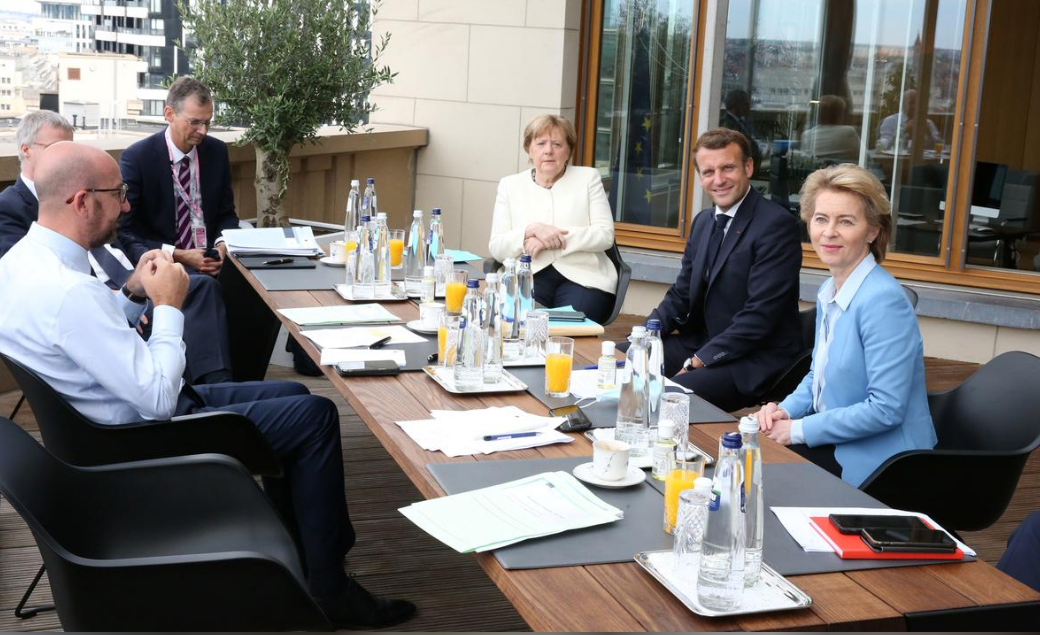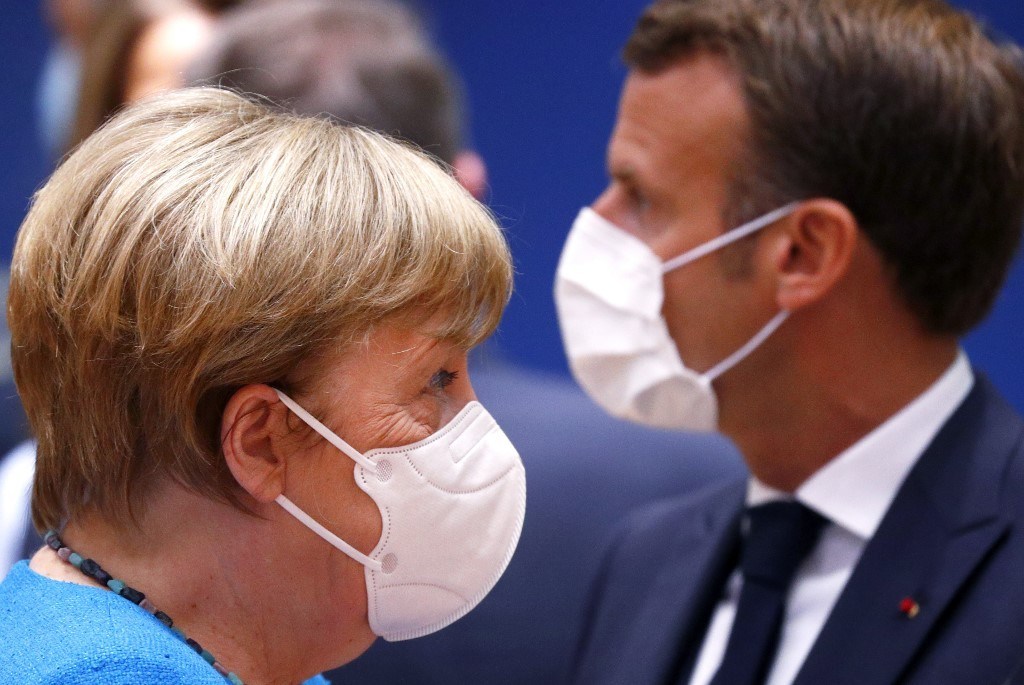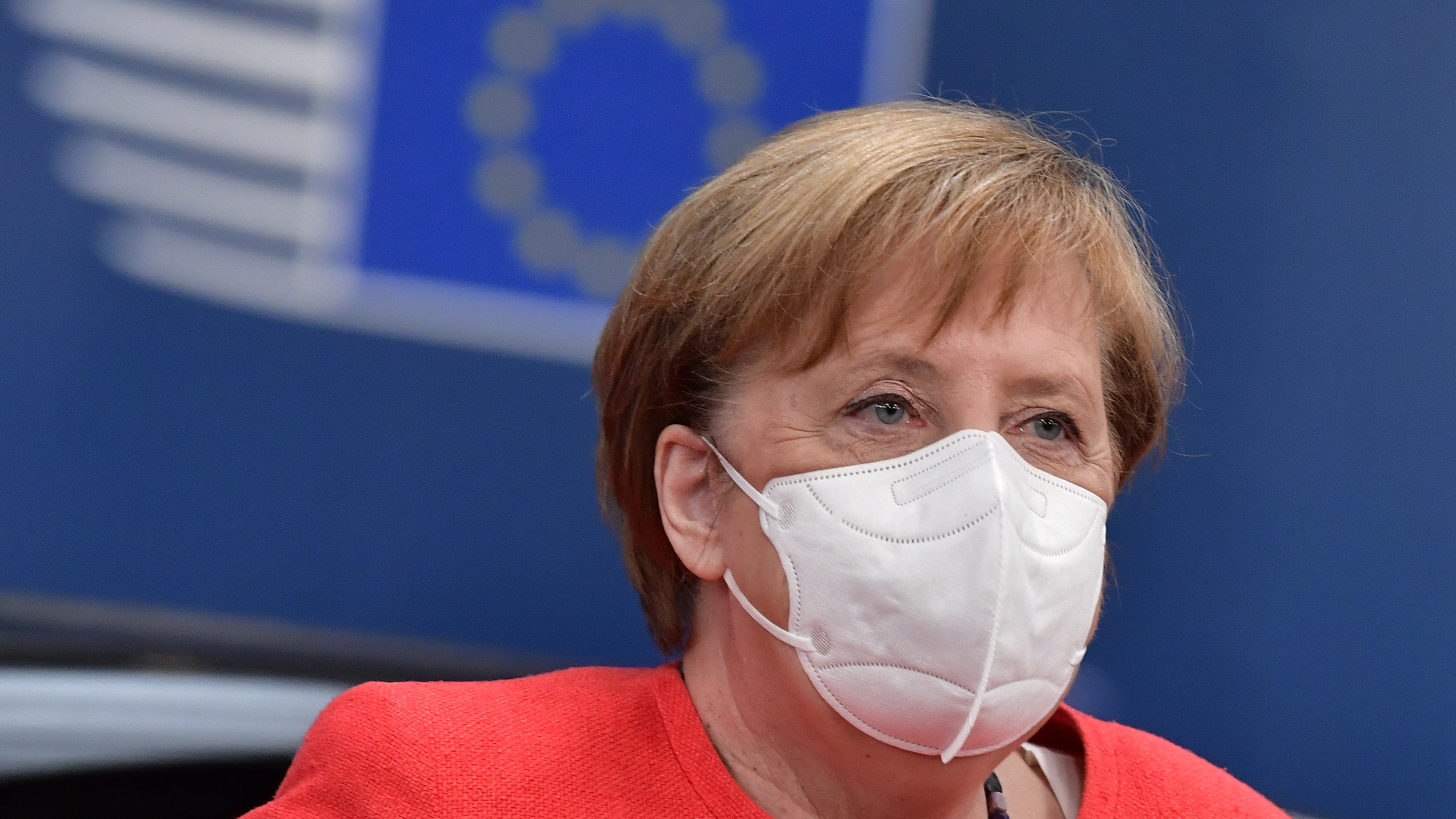01:52

European Union leaders stood at an impasse on Monday after three days of haggling over a plan to revive economies throttled by the COVID-19 pandemic, but the chairman of the marathon summit urged them to make one last push to agree to an unprecedented 1.8 trillion euro (2.06 trillion U.S. dollars) budget for a coronavirus recovery fund.
After three days of fruitless talks, Charles Michel conjured up during an official dinner the vision of the 600,000 dead that COVID-19 has claimed around the world and the unprecedented recession it has wrought on the bloc.
Charles Michel reminded the 27 leaders of the European Union it was up to them to stand together in the face of an unprecedented crisis. "My hope is that we reach an agreement and that the headline tomorrow is that the EU has accomplished mission impossible," the European Council President said at their third dinner in a row at the Brussels conference center.
The bitter negotiations have underscored the deep divides within the 27-nation bloc, with the traditional Franco-German alliance struggling to get its way.

President of the European Council Charles Michel (L), Germany's Chancellor Angela Merkel (C), France's President Emmanuel Macron (2nd R) and President of the European Commission Ursula von der Leyen pose during a meeting at the first face-to-face EU summit since the coronavirus disease outbreak. Brussels, Belgium, July 19, 2020. /Reuters
President of the European Council Charles Michel (L), Germany's Chancellor Angela Merkel (C), France's President Emmanuel Macron (2nd R) and President of the European Commission Ursula von der Leyen pose during a meeting at the first face-to-face EU summit since the coronavirus disease outbreak. Brussels, Belgium, July 19, 2020. /Reuters
The leaders are at odds over how to carve up a vast recovery fund designed to help haul Europe out of its deepest recession since World War II, and what strings to attach for countries it would benefit.
Diplomats said the leaders may abandon the summit and try again for an agreement next month, but as they negotiated into the early hours of Monday a deal still looked possible.
On the table is a 1.8 trillion euro (2.06 trillion U.S. dollars) package for the EU's next long-term budget and recovery fund.
The 750 billion euros proposed for the recovery fund would be raised on behalf of them all on capital markets by the EU's executive European Commission, which would be a historic step towards greater integration, and then funneled mostly to hard-hit Mediterranean rim countries.

Germany's Chancellor Angela Merkel (L) and France's President Emmanuel Macron attend an EU summit. /AFP
Germany's Chancellor Angela Merkel (L) and France's President Emmanuel Macron attend an EU summit. /AFP
The pandemic has sent the EU into a tailspin, killing around 135,000 of its citizens and sending its economy into an estimated contraction of 8.3 percent this year.
All nations agree they need to band together but five richer countries in the north, led by the Netherlands, want strict controls on spending, while struggling southern nations like Spain and Italy say those conditions should be kept to a minimum.
German Chancellor Angela Merkel warned that the discussions could still end without a deal.
"Whether there will be a solution, I still can't say," she said, as she arrived early for the extra day of talks at what had been planned as a two-day summit in Brussels.
00:39

"There is a lot of goodwill, but there are also a lot of positions. So I will join in working for it. But there may also be no result today."
Mrs Merkel and French President Emmanuel Macron walked out of heated talks late on Saturday, with a group of nations led by the Netherlands pushing to limit the amount of grants given to countries whose economies have been hardest hit by the virus and to impose strict conditions on how the money is spent.
"They run off in a bad mood," Dutch Prime Minister Mark Rutte said in the early hours of Sunday after Mrs Merkel and Mr Macron's departure from talks.
A group of wealthy north European states pushed during the summit for a smaller recovery fund and sought to limit how payouts are split between grants and repayable loans.
Italian Prime Minister Giuseppe Conte accused the Netherlands and its allies – Austria, Sweden, Denmark and Finland – of "blackmail."
Dutch Prime Minister Mark Rutte's position reflects political realities in his country, where voters resent that the Netherlands is, proportionately, among the largest net contributors to the EU budget.
(With input from agencies)